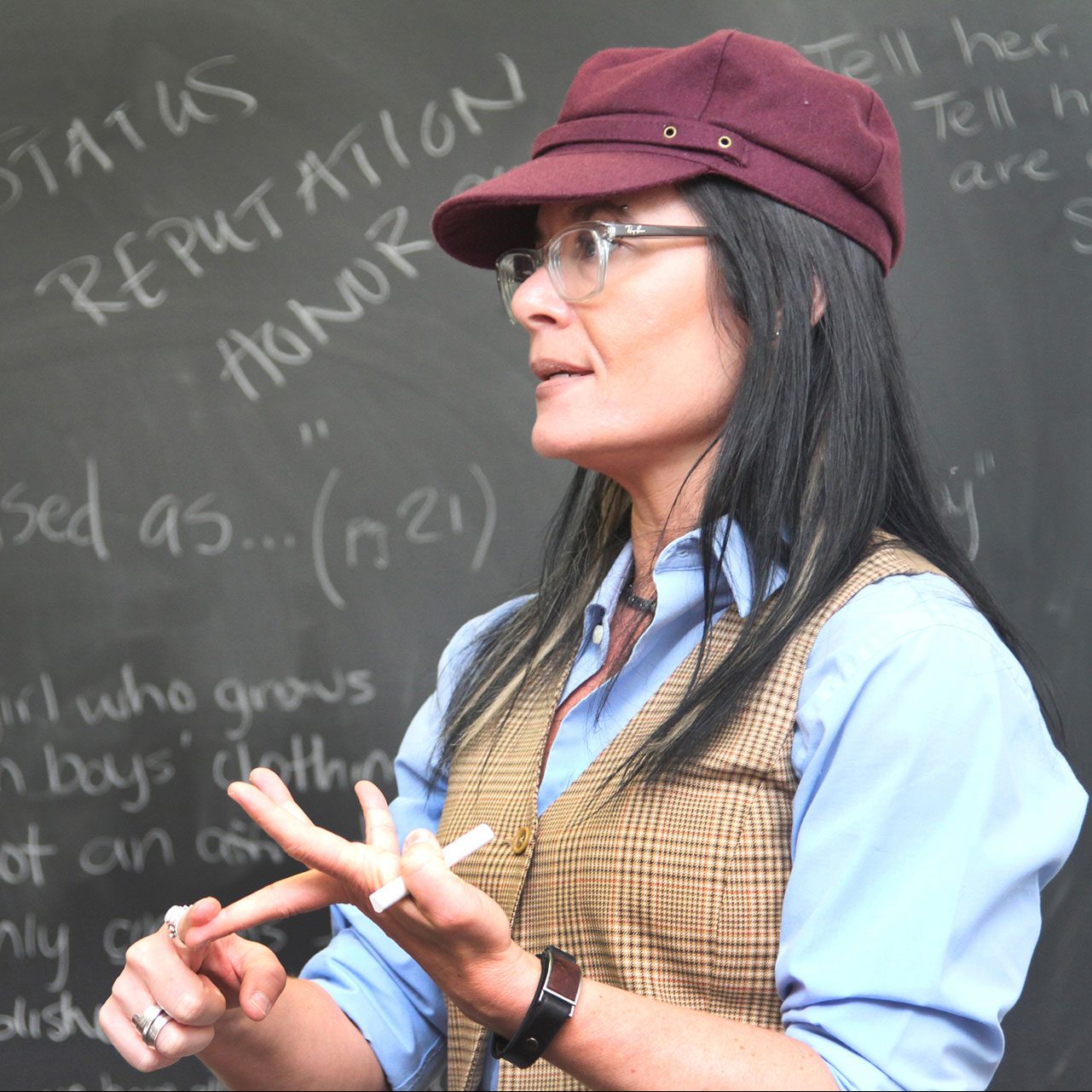Learn more about Dr. Suzanne Ashworth’s forthcoming book, Perverse Feelings: Poe and American Masculinity
Posted Apr 06, 2021

Suzanne Ashworth, the English Department’s beloved specialist in early American and LGBTQ literatures is taking sabbatical with the “living dead”: with Edgar Allan Poe and a historical masculinity that haunts our culture. Her forthcoming book, Perverse Feelings: Poe and American Masculinity, engages with the urgent 21st-century cultural conversation around “toxic masculinity.” Although she complicates this phrase, Dr. Ashworth understands that “toxic masculinity” wants to say something important to us. Something about how dark energies – like anger, violence, revenge, and more — are normalized for American boys and men.
Dr. Ashworth argues that Poe and the men he brought to life on the page speak directly to the now – to us, our culture. Poe’s fictions ask familiar questions about sick, disturbed, failing men. What do we do with the “dead white men” that ghost our present? How should we feel about white masculine pain and injury? Dr. Ashworth’s book warns against an uncritical relationship with this distress. Our own culture, she points out, shadows Poe in its vexed relationship with white masculinity. We may condemn the patriarch’s past transgressions, but we are nostalgic for his dominance. We may disparage an unfeeling masculinity, but we still want the love of the impassive forefather. We may fear the lethal impacts of violent masculinity, but we revel in the wantonness of violent men.
The book found life and energy in the classroom, beginning in conversations Dr. Ashworth had with her students. In classes like: Poe/King/Gothic, American Emo, American Gothic, Masculinities, and more. It took a foundational form in articles and conference papers. In fact, Dr. Ashworth and the project were “discovered” by an editor from prestigious academic publisher when she presented at a Gender Studies conference in 2018.
For many of us, Dr. Ashworth’s scholarship – and teaching – reinforces the powerful relevance of past and present literatures. With one of her favorite literary thinkers, Dr. Ashworth tells her students that when we write – and when we read – we learn to stand both inside and outside of ideology. Which means that knowledge is not just power. Knowledge is also freedom.